CALL TODAY 646-846-1136 | EMAIL
Surgical Experts Dedicated to Improving Lives
At Lenox Hill Surgeons, our dedicated team of nyc surgeons and medical professionals provide compassionate care with the highest ethical & professional standards. In our state of the art facility, we offer surgical services using only the most cutting edge and current procedures and treatments.We specialize in general surgery, including extensive experience in performing hernia repair surgery. Our expertise is in minimally invasive surgery and robotic surgery. Minimally invasive and robotic surgery often allow patients to experience easier recovery than traditional open surgery. They also allow for more precise and less traumatic surgery. When robotic and minimally invasive surgery is not an option, we are also skilled and experienced in traditional open surgical procedures.
All of our doctors are experienced and skilled surgeons having undergone extensive training in school, residency and fellowships. They all practice medicine with ethical behavior, compassion and superb bedside manner. In the operating room they all exhibit precise mechanical abilities, analytical thinking and the ability to visualize tissue in three dimensions. These innate and learned skills allow our surgeons to be some of the most dexterous and skilled professionals in all of New York City and the Country.
Call us: 646-846-1136
About The Surgeons
PATIENT TESTIMONIALS
Recent Awards
We are honored and deeply appreciative to have consistently received prestigious awards and recognition year after year, establishing us as one of New York’s foremost hospitals for a wide range of general surgeries, safety measures, specialized procedures, and overall excellence in healthcare. At Lenox Hill Surgeons, our unwavering commitment lies in delivering exceptional care and unwavering support to our patients, guaranteeing their safety and successful recovery throughout their entire surgical experience.
Hospital Quality Awards
 America’s 50 Best Hospitals Award™ (2023, 2022)
America’s 50 Best Hospitals Award™ (2023, 2022)
Top 1% in the nation for providing the highest clinical quality year over year.

America’s 100 Best Hospitals Award™ (2021)
Top 2% in the nation for consistently delivering clinical quality year over year.

America’s 250 Best Hospitals Award™ (2023, 2022, 2021)
Top 5% in the nation for consistently delivering clinical quality.

Patient Safety Excellence Award™ (2023, 2022)
Top in the nation for providing excellence in patient safety by preventing infections, medical errors, and other preventable complications.
Specialty Clinical Quality Awards

America’s 100 Best Hospitals for Cardiac Care Award™ (2023, 2022, 2021, 2020, 2019)
Superior clinical outcomes in heart bypass surgery, coronary interventional procedures, heart attack treatment, heart failure treatment, and heart valve surgery.

America’s 100 Best Hospitals for Coronary Intervention Award™ (2023, 2022, 2021, 2020, 2019)
Superior clinical outcomes in coronary intervention procedures (angioplasty with stent).

America’s 100 Best Hospitals for Prostate Surgery Award™ (2023, 2022, 2021)
Superior clinical outcomes in prostate removal surgery and transurethral resection of the prostate.
Click to see all of our Healthgrades best doctors awards


Visit our main website at www.LenoxHillSurgeons.com
Blog Posts are Below:
Category Archives: Hernia Surgery
Hernias & Surgery
Sometimes, a fatty tissue or part of an internal organ squeezes through an opening in the surrounding muscle. This phenomenon results in hernia occurs. Most commonly, the internal tissue protrudes through a weak spot in the muscular wall of your lower abdomen. However, hernias may develop in many other locations in your body.
A hernia patient may observe a lump or swelling in the stomach region but feel no pain. That’s because most hernias cause no pain and only appear as a bulge. However, increased pressure in the abdominal muscle wall –due to obesity, persistent coughing, or pregnancy –may enlarge the hernia.
Types of Hernia
Some hernias are present at birth time and may go away before the infant is one year old. Adults are also susceptible to develop hernia. Some of the common types of hernias include:
Inguinal hernia
Men are five times more susceptible to inguinal hernia than women. It is the most common hernia accounting to 75% of all hernias. An inguinal hernia occurs when the intestine or in rare cases the bladder, protrudes into the groin through the inguinal canal.
Femoral hernia
Pregnant and obese women are more likely to develop a femoral hernia. When the intestine enters the canal containing large blood vessels (the femoral artery and vein), it results in hernia. The canal is located between the abdomen and thigh. Thus, the bulge appears in the upper thigh, groin, or hip.
Hiatal hernia
This type of hernia occurs when a part of the stomach slips upward through openings in the diaphragm and extends into the chest. Hiatal hernia is linked with “gastroesophageal reflux disease” (GERD) that causes heartburn.
Umbilical hernia
It occurs when the intestine bulges into the abdominal wall through the navel. An umbilical hernia is mostly found in newborns and disappears with time. However, it may develop in obese men and women with multiple pregnancies.
Incisional hernia
33 percent of patients who undergo abdominal surgery are likely to develop an incisional hernia. It occurs when the muscle underlying the treated area pulls apart, letting the internal structures pass through the weak spot.
Symptoms
Not all hernias are painful or show visible symptoms. In most cases, the patient only experiences a lump. Or the skin surrounding the bulge becomes sensitive. Likewise, not all hernias need surgeries. However, a hernia becomes “incarcerated” when tissue or intestine gets trapped in the abdominal wall.
In extreme situations, incarceration may strangulate your organs. Thus, the blood supply to your intestine and tissues is cut off, thereby causing the intestine to die. The condition calls for immediate medical help and surgery.
Hernia Repair Surgeries
The purpose of a surgical hernia repair is to relieve the pain and push the bulge back to the right place, thereby strengthening the muscle area. Hernia repair is one of the most common and shortest surgical procedures in the world. The surgical options for enlarged hernias include:
Open Surgery
For open surgery, the patient is given general anesthesia. The surgeon makes an incision of around 2.5 to 3 inches around the surrounding the hernia. The doctor may push the hernia back into the abdomen, tie it off, or gently remove it.
Once the procedure is over, the surgeon closes the area with stitches. In the case of large hernias, doctors place a piece of mesh over the hole for extra support. Thus, the mesh keeps the hernia in place, reinforcing the weakened muscle.
Minimally Invasive Surgery
In minimally invasive surgery, also called laparoscopy, the surgeon inflates a harmless gas in the abdomen. The gas helps the doctor to look at the structure and organs closely. The surgeon then goes for a series of small incisions near the hernia.
He/she then inserts a thin tube with a small camera (laparoscope) into one of the cuts. The captured images serve as a guide for the surgeon to treat the hernia. The laparoscopy is performed with general anesthesia, and people tend to recover sooner with this procedure as compared to open surgery.
Final Word
Whether you require traditional open surgical procedure or minimally invasive surgery, Lenox Hill Surgeons is the right place in NYC. Our compassionate team of surgeons meets the highest ethical and professional standards. Book your appointment today and consult the best surgeons in the town.
History of Hernia Repair
You may think that hernia repair surgery is a relatively recent concept. And why not? Many people may view hernias as minor, insignificant problems. However, hernias can develop into serious, potentially life-threatening issues if left on checked. For centuries, people have been aware of just how dangerous a hernia can really be. Since ancient times, surgeons have been doing the best they can to correct this comment issue. Today, we have advanced techniques that allow safe and effective treatment with minimal recovery time. That has not always been the case, as we will consider.
The First Hernia Surgery
Ancient records of hernia surgery can date all the way back to ancient Egypt. Of course, there was minimal understanding of many of the concepts required to effectively perform any kind of surgery. Don’t even still, ancient Egyptians were able to understand the very basic information about hernias. For example, Even back then they understood that hernias could present a significant risk. They also understood many of the symptoms and potential causes for them. Just think! Long before computers, x-rays, and precision tools designed with the specific intent of performing surgery people wear attempting to correct such a serious issue. How effective were they? As you might expect, they were nowhere near as effective then as we are today. Due to the lack of evaluative and diagnostic understanding, many surgeries were performed in a sort of “trial and error” method. This included removing large sections of intestinal tissue, massive bloodletting to reduce the size of the hernia, and removing surrounding tissues. Some of these showed minimal results at best, leading many to dismiss the thought of treating hernias.
Technological and Medical Advancements
As time went on, more and more discoveries about anatomy and microbiology were developed that benefited the progress of hernia treatment. For example, the development of anesthetics allowed for a significant reduction in pain and therefore a more tolerable surgical experience. A growing understanding of antiseptic and hygiene techniques allowed for a much higher rate of recovery and greatly lower the risk of infection after surgery. In addition, further anatomical discoveries were constantly being made. This led to a better understanding of what exactly makes up a hernia, allowing for more effective and focused treatments. By the early 19th century, hernia surgeries were still being attempted with little to no success. This was all soon to change.
Landmark Developments
Has further medical understanding was refined, more effective treatment for a number of conditions with found. One primary development was with the implementation of prosthetic instruments. Originally, metal mesh sheets were implanted into the herniated region in order to prevent further herniation or relapse. This technique continues to be used today. Regular improvement on the materials, design, and placement of these mesh sheets continues to be made to this day. Also essential to hernia repair has been the greater use of the appropriate surgical procedures. For example, better laparoscopic techniques for entering the affected region and more effective sutures have made for better recovery times and less risk of complication. It is to be expected that constant improvement and development will be made to the surgical procedures. Advanced techniques, such as using robotic arms or lasers for increased precession, are just around the corner. We can be sure, regardless of what comes next, that the already effective and safe surgery involved in hernia repair will only get better!
Are you in need of the most up-to-date an advanced hernia surgery available today? Talk to the best surgeons in NYC to get your surgery scheduled.
Lenox Hill Surgeons, LLP
155 East 76th Street
Suite 1C
New York, NY 10021
—————
References
https://www.ncbi.nlm.nih.gov/pubmed/19140492
https://www.ncbi.nlm.nih.gov/pubmed/14586774
https://jamanetwork.com/journals/jamasurgery/article-abstract/212807
Hernia Repair Surgery – What to Expect
There are many different types of hernias; inguinal, femoral, umbilical, incisional, and more. Regardless of the exact diagnosis, every hernia has a few things in common. First and foremost, every hernia causes pain and discomfort. Whatever the location of the hernia, every hernia repair surgery has many similarities. If you are planning a hernia repair surgery, you likely have a few questions. What exactly is involved in hernia repair surgery? What will the recovery be like? How long until I can get back to doing the things I want to do without pain or discomfort?
Surgical Prep
The first step in hernia repair surgery is discussing your exact problems with your surgeon. Although many hernias are very similar, no two people are exactly alike. Instead, talk with your surgeon about the exact location of pain, what you have found that relieve pain, how long you have been dealing with your hernia, and other information about your specific case. Your doctor will likely have questions about your personal medical history, what medications you are currently taking, if you have a family history of hernias or other similar conditions, and more.
Surgical Procedure
There are two distinct surgical procedures used for hernia repair surgery. One technique is known as herniorrhaphy. In herniorrhaphy, the abdominal cavity is opened up and the lump of tissue, called the hernia sac, is removed or placed into the correct position. Any adjustments to internal organs that are needed are then made, including blocking any further protrusions. The muscular wall that is meant to hold the soft tissue in place is then repaired. In other cases, additional support to the muscular wall is required. In these situations, a layer of mesh is placed over the weak point in the muscular wall. This procedure is known as a hernioplasty.
In some rare cases, there are hernias on both sides of the body. This will call for a longer, more intensive surgery with a potentially longer stay. The two hernias may also require different procedures in order to deal with them in a minimally invasive but effective way. Once all internal adjustments have been made, the incision site is then stitched shut.
Recovery
Hernia surgery is typically an outpatient procedure, meaning that an overnight stay is not expected. However, extenuating circumstance may arise that require an extended stay. Instead, you may only need to spend a few hours in the recovery room. Here, the staff will monitor your vital signs and ensure that no obvious complications have arisen. A standard recovery from a hernia surgery for healthy patients is usually around three weeks. Within those three weeks or so, strenuous movements must be limited. This includes bending, lifting, and rigorous activity. Even once these basic restrictions have been lifted, avoid movements that cause pain to the incision site or the former location of the hernia. It will be important to discuss recovery time with your surgeon. Even though hernia repair surgery is a common procedure, every surgery and patient is different.
Your surgeon may have share different expectations for your recovery. Keep a close eye on the incision site and the former location of the hernia. Monitor for signs of swelling, infection, or reoccurrence. These are rare, but potentially serious outcomes. Talk with your doctor if any of these occur.
Are you preparing for hernia repair surgery? Schedule a consultation with the best surgeons in NYC to and plan for your surgery.
LENOX HILL SURGEONS
155 East 76th Street
Suite 1C
New York, NY 10021
646-846-1136
lenoxhillsurgeons@gmail.com
———
References
https://nyulangone.org/conditions/hernia-in-adults/types
https://www.uofmhealth.org/health-library/aba5300
https://www.webmd.com/digestive-disorders/need-surgery-hernia
Abdominal Hernia Repair
Abdominal hernias account for hundreds of thousands of surgical procedures every year. Even within the category of abdominal hernias, there are many different hernias that can occur. In addition, everyone will present a little bit differently with regard to how their hernia affects them. You may wonder, though, what exactly is a hernia? How can a hernia affect your life? What are the treatment options available to you?
What is a Hernia?
In the body, the internal structures, including organs and other tissues, are held in place by muscles that are kept tight and strong. A hernia is found when a section of soft tissue, commonly the intestines, pushes through a weakened section of the abdominal muscle wall that typically holds it in place. This can happen for a number of reasons, all of which are related to increased pressure within the abdominal cavity. For example, bending over and lifting a heavy object compresses the space in the chest and puts added pressure on the abdominal cavity. The small section of tissue that is expelled is the hernia.
How Does an Abdominal Hernia Affect you?
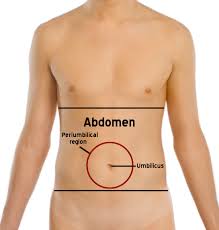 Even though many people may have the same type of hernia, or a hernia in the same region, they will not all have the same symptoms. For some people, they may not even know about their hernia until a doctor finds it on a routine physical exam. For others, the hernia may become painful in the moment it is formed.
Even though many people may have the same type of hernia, or a hernia in the same region, they will not all have the same symptoms. For some people, they may not even know about their hernia until a doctor finds it on a routine physical exam. For others, the hernia may become painful in the moment it is formed.
Some hernias are not, on their own, harmful. Most often, though, a hernia is painful, especially during strenuous activity, such as lifting or heavy coughing. This hernia can also cause additional problems, such as intestinal blockages or infection. Usually, though, a hernia is found either on accident or during a particularly rigorous task. In fact, many people have hernias for years before even being aware of their presence.
How can you Treat an Abdominal Hernia?
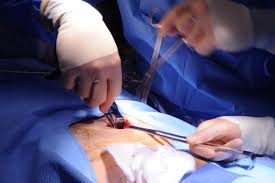 The first and most important principle in treating an abdominal hernia is not making it worse. This includes limiting bending and heavy lifting, utilizing proper body mechanics principles, and trying to limit strain on the abdominal wall. If the hernia is known to have been caused or exacerbated by a persistent cough, trying to remedy the cough will be a high priority as well.
The first and most important principle in treating an abdominal hernia is not making it worse. This includes limiting bending and heavy lifting, utilizing proper body mechanics principles, and trying to limit strain on the abdominal wall. If the hernia is known to have been caused or exacerbated by a persistent cough, trying to remedy the cough will be a high priority as well.
It will also be important to monitor the hernia closely. If the hernia changes size, becomes warm, or becomes more painful, it will be important to alert your doctor. This can be a sign of infection, which can lead to many complications.
No matter what the cause of the hernia was, though, hernias cannot repair themselves. If you decide that the hernia needs to be repaired through surgery, call the best surgeons in NYC. There are a number of different procedures that can be followed to help treat a hernia. For example, hernioplasty can be performed. During a hernioplasty, the herniated protrusion is pushed back into place behind the muscle wall and a small piece of mesh is placed over the hole. This allows for greater stability and decreased risk of further herniation. In other cases, the muscular wall can simply be stitched up, with no additional hardware required.
Do you have an abdominal or other type of hernia? Not sure what to expect? Call the best general surgeons in NYC so we can figure out how we can best handle your case.
Lenox Hill Surgeons
155 East 76th Street
Suite 1C
New York, NY 10021
———
References
Hernia Repair Surgery: Overview, Types, Precautions & More
Hernia Repair Overview
You’ll be considered for a hernia repair surgery if visceral tissues constituting internal organs like the brain, groin or abdomen become herniated. Herniation of the viscera including the abdomen, intestines, heart, and lungs cause these organs to become bulged or swollen, forcing them to protuberate through the walls sheathing them. Two of the most predominating kinds of a hernia is an inguinal hernia (involves the groin) and umbilical hernia (entails the umbilical cord).
Surgical intervention becomes indispensable to prevent or allay unwarranted complications shortly as a hernia usually tends to grow bigger with the passage of time. Hernia surgery is a simple procedure is conducted as an outpatient mode, doing away with the need to stay in the hospital.
Types
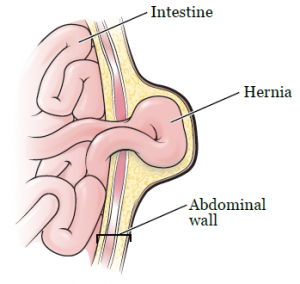
Regardless of whether your hernia is diagnosed as reducible, irreducible or strangulated, you could opt for either of the two broad types of hernia repair surgery: “genioplasty’ and :”herniorrhaphy”. Herniorrhaphy is the conventional mode of correcting or repairing a hernia.
The surgeon creates a large incision over the area surrounding the bulging tissues or organ. Then, he does away with the protuberance so that he can put the displaced organ back to its original position. At last, the opening is sutured and disinfected to keep infection at bay.
The surgical procedure of hernioplasty is nearly identical to herniorrhaphy with the exception that the surgeon instead of ligaturing the notch, places a sterilized mesh. Hernioplasty or herniorrhaphy can be done as open surgery or laparoscopically.
What Should You Keep in Mind?
You’ll be eager to go back to leading a normal life once the surgery has been carried out effectively. Do not be alarmed on seeing the IV tube and the bandages or dressings encasing the incisions after you starting gaining consciousness following the surgery. Nursing assistants and hospital staff will be there by your bedside to offer you any help you need.
The faster you’re able to eat, drink, and walk around on your own, the sooner will you be discharged. Additionally, you’ll need to urinate to be considered for an early discharge. Finally, the doctor will let you go home, if and only if there is someone to take you home.
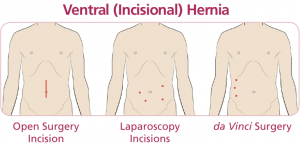
Since you’ll not be in a position to return to a normal lifestyle at least for the first two weeks, it’ll be better if you’ve someone who can take good care of you. Your surgeon will specify the instructions you’ll have to abide by in the days to come, in your discharge note. The doctor will also make you aware of the guidelines verbally which will usually pertain to cleaning and dressing the incisions, the medications you will have to take, the symptoms to look out for, and so on.
You’ll be given a contact number or helpline number in case you need to report a symptom or clarify an issue. You’ll become tired quickly in the first couple of weeks after the surgery but may recuperate completely within 3-6 weeks. You’ll have to amble around frequent to boost circulation which in turn will expedite healing.
You’ll have to keep the openings thoroughly dry so you may have to wait for 3-4 days before you can start showering. Since you’ll be physically weak, you’ll have to stick to a diet rich in fibers as well as take fresh fruits, vegetables and fluids to stay energetic. Pain medications and stress resulting from remaining idle could cause constipation. You can take a laxative to deal with it but only if the doctor allows it.
Concluding Remarks
If your hernia is mild, you may or may not have symptoms. You may be able to live with a herniated organ for a long period, but you never know when the herniation might aggravate leading to grave complications. Hence, it is better to go for repair surgery to stay on the safe side and for complete peace of mind.
Schedule an appointment with us to know more about the advanced forms of treatments that can aid in treating such cases.
References
- https://www.highgatehospital.co.uk/things-you-need-to-know-hernia-operation/
- https://www.webmd.com/digestive-disorders/need-surgery-hernia#1
- http://columbiasurgery.org/news/2014/04/15/hernias-what-you-need-know
- https://en.wikipedia.org/wiki/Hernia_repair
- https://my.clevelandclinic.org/health/treatments/6905-laparoscopic-surgery-for-hernia-repair/risks–benefits
- http://www.medtronic.com/us-en/patients/treatments-therapies/hernia-surgery/about-recovery.html
- https://www.medicalnewstoday.com/articles/319753.php
Hernia Repair Surgery – NYC Surgeon
Hernia Repair Surgery: Steps, Benefits, Side-Effects, Precautions & Prognosis
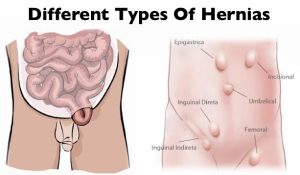 Hernia repair surgery entails the application of instrumental and manual procedures for correcting herniation of tissues or viscera including groin, abdomen, brain, and diaphragm. Internal organs, composed of tissues, could get herniated or bulged, forcing them to protrude via the wall encasing them. Hernias involving the groin (an inguinal hernia) and the umbilical cord (an umbilical hernia) are two of the most prevalent forms of a hernia.
Hernia repair surgery entails the application of instrumental and manual procedures for correcting herniation of tissues or viscera including groin, abdomen, brain, and diaphragm. Internal organs, composed of tissues, could get herniated or bulged, forcing them to protrude via the wall encasing them. Hernias involving the groin (an inguinal hernia) and the umbilical cord (an umbilical hernia) are two of the most prevalent forms of a hernia.
Since a hernia does not heal on its own but rather expands over time, it is crucial that you opt for surgical treatment to avoid unnecessary/preventable complications in the long run. Hernia surgery, usually performed on an outpatient basis, is a moderately simple operation that can help remedy the organ’s bulging and restore it to its original position.
Steps
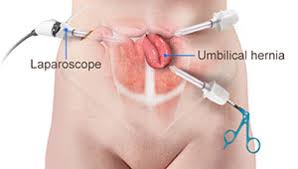 Two of the most popular types of hernia repair surgery is ‘herniorrhaphy’ and ‘hernioplasty’. Herniorrhaphy-the traditional hernia repair technique-is still conducted extensively where the surgeon makes a wide and long notch over the herniated organ. Thereafter, the physician removes the protrusion and reinstates the dislodged organ or tissues to its actual site.
Two of the most popular types of hernia repair surgery is ‘herniorrhaphy’ and ‘hernioplasty’. Herniorrhaphy-the traditional hernia repair technique-is still conducted extensively where the surgeon makes a wide and long notch over the herniated organ. Thereafter, the physician removes the protrusion and reinstates the dislodged organ or tissues to its actual site.
Finally, the doctor sutures the hole in the muscle via which the protuberance developed, sterilizes the incision, and sews it up. Hernioplasty is very much similar to herniorrhaphy procedurally excepting that in the final step, the surgeon overlays a sterile mesh (produced from animal tissues or polypropylene) on the muscular notch rather than suturing it. The nature or type of your herniation will determine the mode of repair surgery you’ll need to opt for.
Strangulated, reducible, and irreducible hernias are the three most widespread kinds of hernias. Both of the aforementioned surgical operation procedures can be carried out using a laparoscope or via open surgery.
Benefits
Both hernioplasty and herniorrhaphy are straightforward and uncomplicated surgical repair processes that take about 30-40 minutes to complete. You won’t feel any pain as the surgery will be done using either local or general anesthesia. Majority of patients are discharged from the hospital or medical center on the very day the laparoscopic surgery is performed. The usual benefits of the laparoscopic repair operation include:-
- Very short duration of stay
- Faster healing
- Reduced pain post surgery
- Quicker return to normal life
- Minimal costs (including all the expense heads)
- Lower risks of infection
Side Effects
The side effects of this type of surgery, most of which are rare, involve:-
- Swelling and redness around the incision or opening
- Blood clot
- Mesh pain
- Urinary tract infection
- Urinary incontinence
- Infection
- Difficulty urinating
- Hernia recurrence
- Neuralgia or nerve damage
- Constipation
- Kidney failure or complications
- Breathing problems or pneumonia
Precautions
You must abide by the surgeon’s instructions once you return home (which are usually on the same day the surgery is carried out) for a speedy recovery. Take all the prescribed medications on time, including the anti-inflammatory drugs for minimizing the possibilities of incision swelling. Contact your surgeon instantly if you’ve recurrent spells of fever, coughs, chills, nausea, abdominal swelling, bleeding as well as experience difficulty in urinating. Make sure you get sufficient rest for at least two weeks following the operation so that you can get back to work at the earliest.
Prognosis
Most hernia surgeries are effective, enabling patients to recover fully within 4-6 weeks. A typical person who has undergone hernia repair surgery can resume normal activities 2 weeks after the procedure.
Concluding Remarks
Opting for a surgical procedure for remedying a hernia is highly recommended not only for avoiding complications which could take a fatal turn (though very rare) but also for going back to leading a normal life. You can make an appointment with our general surgeon for a detailed, one-to-one consultation.
References
- http://www.medtronic.com/us-en/patients/treatments-therapies/hernia-surgery/about-recovery.html
- https://www.webmd.com/digestive-disorders/inguinal-hernia#1
- https://www.medicalnewstoday.com/articles/319753.php
- https://www.highgatehospital.co.uk/things-you-need-to-know-hernia-operation/
- https://www.webmd.com/digestive-disorders/need-surgery-hernia#1
- http://columbiasurgery.org/news/2014/04/15/hernias-what-you-need-know
- https://en.wikipedia.org/wiki/Hernia_repair
- https://my.clevelandclinic.org/health/treatments/6905-laparoscopic-surgery-for-hernia-repair/risks–benefits


















